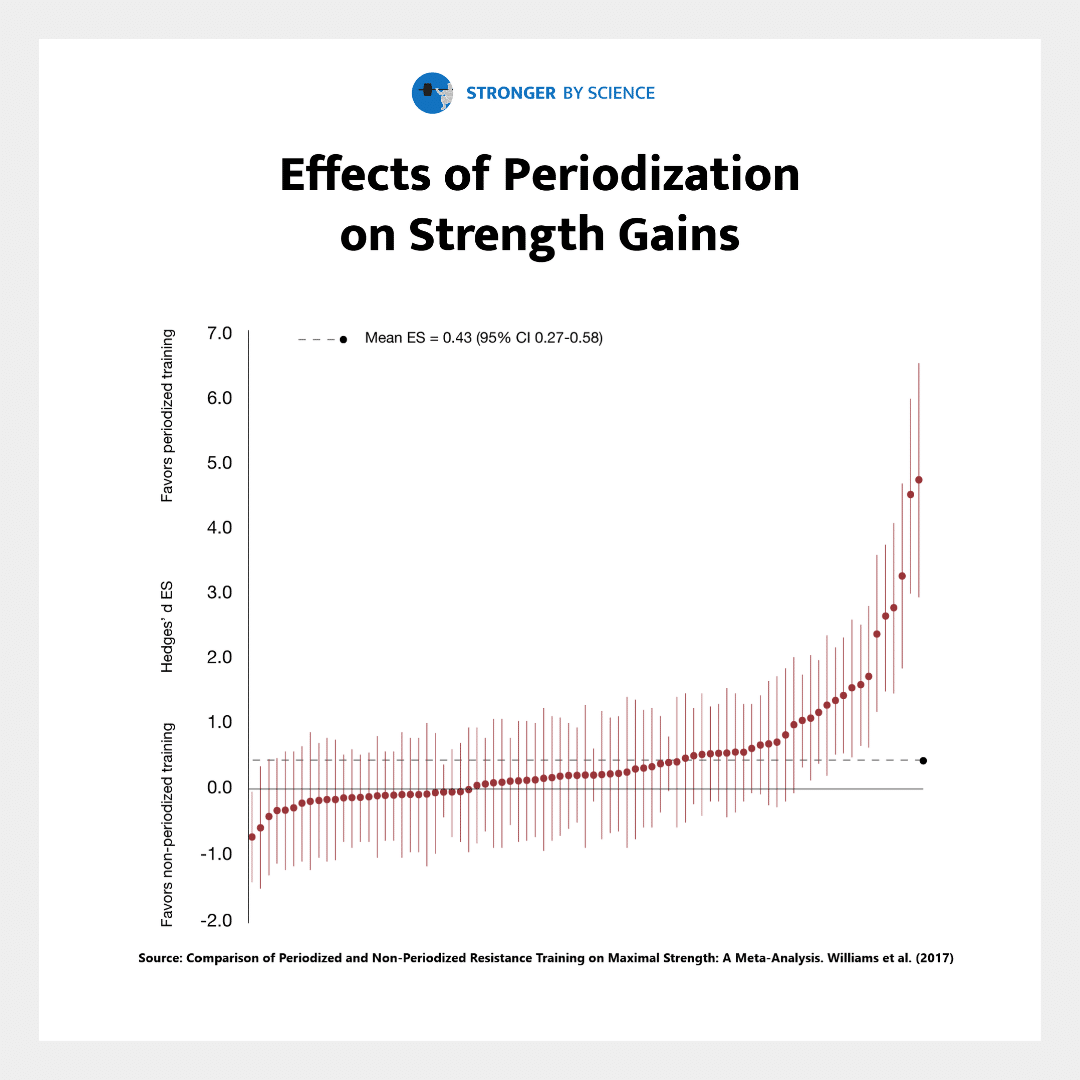A 2017 meta-analysis by Williams and colleagues examined all of the research comparing periodized and non-periodized training, finding that periodized training tends to produce larger strength gains (d = 0.43). After further adjusting for nested effects funnel plot asymmetry, the effect size decreased (d = 0.23 ± 0.05) but was still significant.
In other words, periodized resistance training tends to cause larger strength gains than non-periodized training, but the overall effect is pretty small.
Simple, right?
Not necessarily. A drawback of periodization research is that periodized groups generally get to train at higher peak intensities than non-periodized groups. In other words, a non-periodized group may train with 75% loads for 9 weeks, while a periodized group may train with 60% loads for 3 weeks, 75% for 3 weeks, and 90% for three weeks. Overall, volume and average intensity are matched, but only the periodized group gets the opportunity to train with near-max loads before post-training testing. In other words, the studies may not be testing the effects of periodization itself, but rather the effects of peak training intensity.
A pair of studies from Antretter and colleagues are the only studies comparing periodized versus non-periodized training with volume, average intensity, and peak intensity matched (one, two). They did so by having the non-periodized group train at multiple intensities within each training session. Those studies found that periodized training didn’t lead to larger strength gains than non-periodized training.
The bottom line: In other words, periodization may not INDEPENDENTLY improve strength gains. However, periodizing training gives you more flexibility with training designs. In other words, periodizing your training is probably still a good idea, but you shouldn’t treat it like a magic bullet.
If you’d like to learn more, check out our other articles about periodization history and theory, and a detailed analytical breakdown of the periodization literature.
This study was previously reviewed in more depth in 2017 issues of MASS research review. If you want to subscribe, you can find the plan that works best for you here. Subscribers get full access to our entire back catalog of study reviews.





